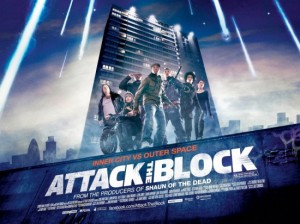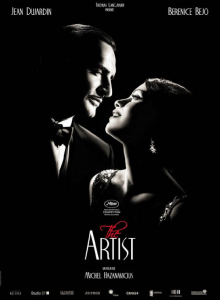Get on Up
Posted on July 31, 2014 at 5:59 pm

There are a lot of challenges in taking on the life story of James Brown, known variously as the Hardest Working Man in Show Business, the Godfather of Soul, Mr. Dynamite and others with variations on the term “Funk.” First and foremost, James Brown was one of the most electrifying performers of all time and though he is gone, the memories of his sizzling stage shows are vivid and the evidence is on YouTube.
Second is the conundrum that besets all who want to do biographical stories of well-known people, especially musicians. Is there a life as big as the work they did? We know that those who achieve greatly often pay an enormous price in personal turmoil for themselves and those around them. But those stories are not easy to tell, especially in the structure of the typical biopic, which goes from hardscrabble childhood to big dreams to first discovery by someone who can open doors to triumph, the first recording session where the heard-it-all studio technicians are blown away, the rapturous discovery by the fans, setback, the corrosive impact of fame and money, and then some catharsis and the achievement of legendary status. (I’m looking at you, “Jersey Boys.” Also “Ray,” “Coal Miner’s Daughter,” “Walk the Line,” “What’s Love Got to Do With It,” “The Benny Goodman Story,” “8 Mile,” etc. etc. etc. etc.)
Director Tate Taylor (“The Help”) makes some good choices addressing these challenges. First, he wisely cast Chadwick Boseman (“42”) in the lead role. Boseman is an actor of exceptional ability and magnetism, and he works as hard as the man he is playing to convey the power of Brown’s stage presence. Second, Taylor, who grew up in the South, has a superb sense of place that helps evoke Brown’s world. And he is not afraid of cinematic touches to evoke what is going on in Brown’s mind, including some asides to us in the audience.
But the film frustrates us with its random swings back and forth as we get so many flashbacks we are not sure where we are. Is this Brown looking back over his life with any insight or regrets or pride? Is the layering supposed to add depth to the story? Are we supposed to make sense of the juxtapositions between scenes of the past and present, sometimes explicitly expressionistic and imagined or exaggerated? It comes across as tricked up and distracting. Boseman is outstanding in the performance scenes but trapped in the rest of the film by Brown’s thick Georgia accent and frequent habit of just not making any sense, as in the very beginning scene when he uses a gun to threaten someone for using his bathroom. It skips over at least one wife and at least seven children, various arrests, and most of the saga of his extended problems with the IRS, without making it clear how what it does tell us illustrates his triumphs, struggles, and motives.
Even more frustrating is that we get so little sense of Brown himself. He comes across as damaged but opaque. What was it that drove him as a performer? What inspired him? We see him berating and imposing fines on his band, but very little of him creating.
There are moments in the film that could be enough for an entire feature. When he is talking to his manager (a wryly sympathetic Dan Aykroyd) on his private plane, en route to the White House, about the conflict he faces as he achieves the mainstream acceptance he strove for in meeting the President at the same time he is accused of selling out. The conflict between “show” and “business” deserved much more exploration. And then there is the core relationship in the story, between Brown and Bobby Byrd (the terrific Nelsan Ellis), the long-time member of his team who finally could not take the star’s ego any more. A Peter Morgan-style story on any of those conflicts would be far more powerful and avoid the “what happened to that person/marriage/record” that this VH1 Behind the Music too-quick trip over a very complicated life can hold.
Parents should know that this is a movie about sex, drugs, and rock and roll, with strong material for a PG-13 with strong language including two f-words, drugs, domestic abuse, child abuse, sad deaths, brief wartime violence, and sexual references and situations.
Family discussion: Why did James and Bobby call each other “Mr.?” How do you “flip” an obstacle? What did it mean when he said, “I paid the cost?”
If you like this, try: watch James Brown’s real-life performances





